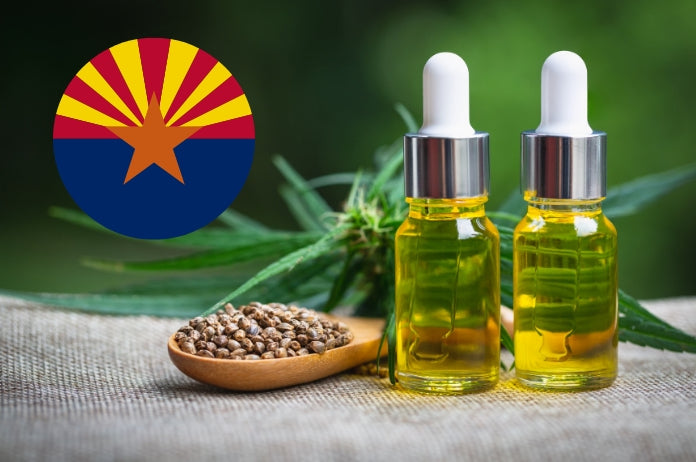The provision, part of last May’s adult-use cannabis law, bans servers and bartenders from serving a customer alcohol and THC drinks within the same five-hour period.

Politicians have a uniquely keen ability to take a perfectly good “anything” (business, social activity, etc.) and ruin it with their destructive penchant for unnecessary lawmaking and subsequent grandstanding. Such is the case with Minnesota’s new recreational cannabis law, signed last May by Governor Tim Walz (D).
In a country overrun by out-of-control legislative well-meaningness and holier-than-thou lawmakers seeking to constantly outshine political opponents and garner the almighty popular opinion and vote, Minnesota stands out, and not in a good way. In particular, the approach by the sponsors of the state’s adult-use cannabis law to micro-manage human behavior to the point of madness was on full display this week.
At issue is a provision in the new cannabis law that prohibits bars and restaurants from selling alcohol and THC-infused beverages to a customer within the same five-hour period. From the outset, there was confusion about when the ridiculous “five-hour rule” would officially take effect.
Many assumed enforcement began immediately following the bill’s passage. However, the vast array of effectiveness dates scattered throughout the 300-page measure indicated the provision would not become law until Spring 2025.
However, the main problem confronting business owners and their employees, all of whom could be held legally liable for any actions by customers resulting from being overserved or illegally served, is this: While a server or bartender might be able to know that a patron they served an alcoholic beverage could not then be allowed to purchase a THC-infused drink, they could not possibly know if that same customer had consumed one or the other at another establishment.
As a result, many businesses chose not to sell both to cover their legal exposure, resulting in an economic catastrophe for the numerous breweries and cideries that entered the new and quickly growing hemp-derived beverage market.
Thankfully, according to multiple local and national media outlets, Rep. Brad Tabke (DFL-Shakopee) filed HB 4029, a one-sentence bill attempting to correct the confusion while maintaining the well-intentioned motivations behind the original provision. The new bill concisely states that “No person may sell, give, furnish, or in any way procure for another lower-potency hemp edibles for the use of an obviously impaired person."
"No person may sell, give, furnish, or in any way procure for another lower-potency hemp edibles for the use of an obviously impaired person."
- MN HB 4029
Sen. Robert Kupec (DFL-Moorhead) has also introduced a companion bill in the Senate.
The straightforward language of Tabke’s “clean-up” measure is similar to the “dram shop” laws already present in current state law concerning alcohol. These laws, which have been around for decades, make it a criminal offense to serve clearly intoxicated persons. These statutes also carry liability provisions, with bar and restaurant owners and their employees potentially civilly liable if an overserved patron injures someone after leaving the business.
Tabke said he was motivated to write and sponsor the small but vital bill after hearing about the issue from the Shakopee Chamber of Commerce,
“It’s just an untenable provision to enforce, to have clear guidelines for how people do the work. It gets to what we needed to do. To make sure THC drinks are treated the same way as intoxicating beverages are treated,” Tabke said.
"It’s just an untenable provision to enforce, to have clear guidelines for how people do the work. It gets to what we needed to do. To make sure THC drinks are treated the same way as intoxicating beverages are treated."
- MN State Rep. Brad Tabke (DFL-Shakopee)
In addition to his bill, Tabke says an additional amendment will be needed to repeal the language in the original legalization statute that established the five-hour rule. Currently, the law says it will be illegal to “sell lower-potency hemp edibles to a customer who the lower-potency hemp edible retailer knows or reasonably should know is intoxicated or has consumed alcohol within the previous five hours.”
Echoing the sentiments of Tabke, Bob Galligan, the government affairs director for the Minnesota Craft Brewers Guild, said, “I understand the spirit of the five-hour rule, but at the end of the day, there’s just no way to keep track of who has consumed what beverage over the course of time. Who knows what someone has had before they walk through your doors? We don’t want to make bartenders do something that is literally impossible.”
"I understand the spirit of the five-hour rule, but at the end of the day, there’s just no way to keep track of who has consumed what beverage over the course of time. Who knows what someone has had before they walk through your doors? We don’t want to make bartenders do something that is literally impossible."
- Bob Galligan, Government Affairs Dir. for the Minnesota Craft Brewers Guild
For Galligan and other experienced bar owners, bartenders, and servers, the most common-sense approach to the issue is to use what works. If someone appears to be intoxicated, don’t serve them any beverage, alcohol, or THC-infused. As Galligan puts it, “This bill just says you can’t serve someone who’s inebriated.” Sometimes, it’s just best to keep it simple.




























